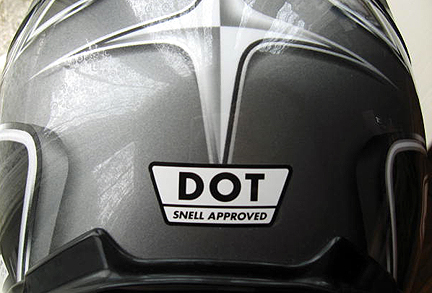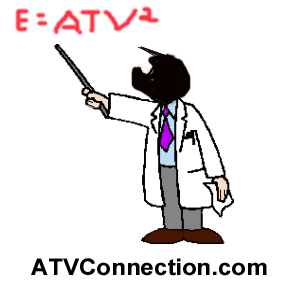Ask The Editors: What’s Good Head Protection Worth?
Dear ATVC:
How important is buying a Snell rated helmet for off-roading? Is DOT good enough cause I noticed they are usually quite a bit cheaper?
“Good enough” in this case isn’t an easy unit of measurement to define. The value of one’s skull is typically viewed in terms of priceless-ness rather than in dollars. That said keep in mind that the Snell rating, which is completely voluntary by the way, indicates that the helmet in question wasn’t only stringently tested, it passed the advanced safety guidelines to which it was subjected.

DOT on the other hand sets minimum standards that all helmets sold for motorcycling on public roads must adhere to. The standard in question is defined by Federal Motor Vehicle Safety Standard 218 (FMVSS 218).
Contrary to common misconception DOT certification is performed almost entirely on the honor system. The helmet’s manufacturer does their own testing to determine whether the helmets satisfies DOT’s criteria and then claims the qualification with a sticker. Amazingly there are not reporting requirements to Uncle Sam to label a unit as DOT certified.
However the government can and does contract spot check testing at various commercial and private labs to verify manufacturer’s claims but these incidents can be few and far between. But failing these criteria during a test could mean big trouble for a helmet manufacturer and the Federal Motor Vehicle Safety Standard (FMVSS) describes in great detail the requirements for DOT certification of all helmets sold in the United States. Helmets that do not meet the minimal DOT certification standards cannot be sold as motorcycle helmets and instead become the jurisdiction of novelty items.
Snell is a safer bet generally speaking because the helmets in question undergo actual testing by the Snell Memorial Foundation, a private not-for-profit organization that sets voluntary standards for protective headgear. Snell’s standards are the generally considered the world’s toughest and since they not only meet all of DOT’s criteria but actually surpass it, one way to be certain your helmet meets DOT standards is to get a Snell certified helmet.
We should note that correlation between price and protection isn’t always direct. In other words, a more expensive lid isn’t always a better one. Certifications can be helpful in making your decision but factors such as weight and materials used in construction can also make a difference. The best approach is to research whatever helmet it is you are considering. The internet is loaded with professional helmet reviews and forum posts alike.

